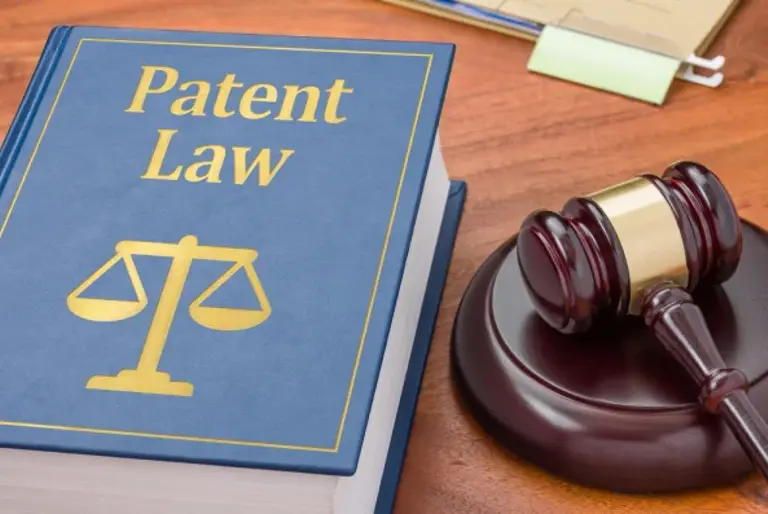The statutory maximum timescale for prosecuting a UK patent application from filing to grant is 4 ½ years, but a granted UK patent can be achieved within one year from filing if steps are taken to minimise the delays.

Achieving Faster Prosecution of UK Patent Applications
What are the normal timescales for patent prosecution?
The statutory maximum timescale is set out in Section 20 & Rule 30 of the UK Patents Act as 4½ years from the filing date. Section 20 was introduced in the 1977 Patents Act to put a statutory limit on the time for patent prosecution, as under the previous 1949 Patents Act some patent applications were remaining pending for many years without being granted.
For a UK patent application, a normal timescale for prosecuting a patent application (the “patent pending” phase) is around 2 years from first filing the application to a final decision on grant. However, there are some UK patent applications which are into their 5th and 6th years of prosecution, and which are still not granted.
Why does the prosecution speed matter?
A patent can only be used to obtain an injunction to prevent infringement once it is actually granted. Courts will not grant injunctions to prevent infringement of patent applications because it is not a granted right – only an application for a right. The rights have not navigated the full examination process and it might turn out that the whole patent application is rejected, and no patent is granted.
However, as a practical matter before a patent is actually granted, it may still be enforceable against a third party due to its deterrent effect on third parties. The prospect of a patent application becoming a granted patent may in itself be enough to deter infringement.
Once granted the infringer can be sued, including being sued for damages occurring for the period after publication and before grant, so the prospect of being sued in the future and having to pay back dated damages is a deterrent. But only once a granted patent right exists can injunctions or orders to prevent current infringement be obtained.
What are the delays?
There are some minimum and maximum time periods in the application process as set out in the Patent Acts and Rules. Generally, within those upper and lower time limits there is opportunity for the applicant or the UK Patent Office to either delay or speed up the procedure.
Sources of delay include:
- the minimum time limits set out in the Patents Acts and Rules
- the workload of the UK Patent Office examiners
- the efficiency, attitude, and level of service of the prosecuting patent attorney
- the rate at which the applicant can fund the patent application
- delays due to public holidays and one-off interruptions (e.g. pandemic, applicants premises flooding, wild fires, etc)
- the applicant or patent attorney deliberately running the deadlines to their maximum times before responding to official deadlines
- the applicant or patent attorney requesting extensions of time to extend official deadlines or missing deadlines and then seeking reinstatement of the application procedure (where reinstatement of prosecution is possible, which it might not be).
Speeding up the patent application process
The UK Patent Office have issued a practice notice “Guidance Get your patent granted more quickly”, updated August 12, 2016 which sets out conditions under which the UK Patent Office will accelerate grant of a UK patent application. The three types of accelerated service offered include:
- combined search and examination
- accelerated search, and/or accelerated examination
- accelerated publication
Combined search and examination
To request combined search and examination, this involves paying the official search fee and the official examination fee at the same time and requesting search and examination. If this is done at the outset on filing an application, a time saving up to grant of up to 2 years can be achieved compared to the same application where requesting search and examination is left until the end of the maximum official deadlines.
The “slowest” maximum official deadlines in the Patents Act and Rules, for search and examination are
- requesting search - one year from the earliest priority date
- requesting substantive examination - two years from the earliest priority date
So by spinning the prosecution out for as long as possible, the applicant can be two years into a patent application before the examination is even requested thereby delaying the ultimate date of grant of the patent.
In general, the UK Patent Offices attitude to applicants who deliberately draw out the procedure by requesting search and examination to the maximum official deadlines, is that these applications are set aside for search and examination. In the meantime, applications filed at the same time, where the applicant has requested combined search and examination at the outset are given preference. The UK Patent Office will “queue jump” applications where combined search and examination is requested at the outset over those filed at the same time, where the applicant has left it until the last minute/end of the statutory period, to request search or examination.
Even if the applicant is unable or does not wish to provide an adequate reason for why the application should be accelerated, it is still possible to accelerate the application by requesting combined search and examination and requesting accelerated publication, and by responding to official examination reports as quickly as possible. Early publication
The normal timescale for publication of the UK patent application is on or shortly after 18 months from the earliest priority date.
Since the patent cannot be granted until the application is first published, and a reasonable time period after publication has been allowed to allow any third parties to file observations, by failing to request accelerated publication the application has an inherent delay of at least 21 months (18 months + 3 months to wait for Section 21 observations to be filed) before the application can proceed through to grant.
The period for publication of the UK patent application runs in parallel with the search and examination procedures, and so the search and examination procedures are finalised and there are no more objections, but the application is still not published, then it is the publication date of the application which will be the determining delay in getting the application through to grant.
However, by requesting publication at the time of filing, or shortly thereafter, the date of publication can be brought forward so as not to be the rate - determining factor slowing the application down and allowing the UK patent application to be granted as quickly as possible with the timescale dictated by the rate of the search and examination procedure.
What are the actions needed for accelerated prosecution?
To get the UK patent application moving as quickly as possible, not only should combined search and examination be requested as early as possible, but also the applicant should request accelerated search and examination. Separate requests can be made for acceleration of the search and for acceleration of the examination procedure, but only if accelerated search and examination are requested will the application proceed at the fastest rate.
Acceleration of the search procedure and examination procedure is discretionary the part of the UK Patent Office, and there must be good reason for the UK Patent Office to exercise its discretion and accelerate search or examination.
Combined search and examination is available upon request. No reason need be given, only that the formalities for requesting such an examination and payment of the official fees are made
When requesting acceleration of the search or acceleration of examination, the applicant must demonstrate why it is important to the applicant that these be accelerated, for example this might include (non-exhaustive list):
- that there is an infringer and the patent needs to be granted quickly in order to seek an injunction
- that the applicant is aged and cannot expect to live long enough to gain the benefit of the full 20 year patent term
- that the granted patent is necessary in order to gain investor funding or grant funding
- that the invention relates to “green” technology, in which case the application will be accelerated due to the climate change emergency
- that the UK application is a national phase of an international patent application (see practice notice: PCT (UK) fast-track)
- the UK patent requires faster grant in order to subsequently to be used as the basis for accelerated prosecution of a foreign patent under the Patent Prosecution Highway (PPH) at another Patent Office.
If at the time of filing the application, all three of the above services are requested, and an adequate reason for wanting the application prosecution to be accelerated is provided, and the applicant responds promptly to examination reports issued by the UK Patent Office, then it is possible to get a UK patent granted in less than a year.
Fast track to grant
The UK Patent Office published example of a fast-track timeline for grant of UK patent application as follows:
 Reproduced from UK Patent Office fast grant guidance, 2016 Crown copyright
Reproduced from UK Patent Office fast grant guidance, 2016 Crown copyright
Using this fast-track procedure, the main actions to take on the part of the applicant are
- pay the application fee, excess claims fees, search fee, substantive examination fee on filing
- request early publication
- request accelerated prosecution, giving an adequate reason for requiring an early grant
- the applicant must respond to all UK Patent Office communications (combined search and examination report) as quickly as possible on receipt and not delay the applicant’s response until the end of the maximum time period given by the UK Patent Office and
- the applicant must not delay complying with required formalities, for example payment of official fees, and filing of formal drawings.
Using a UK patent as a basis for faster grant of foreign patent applications - the Patent Prosecution Highway (PPH)
The UK Patent Office publishes a guidance note: “Accelerated processing patent-prosecution-highway-PPH”. The patent prosecution is an initiative by several of the world’s main Patent Offices to avoid duplication of effort when searching and examining patent applications. Under the PPH agreements, if the claims of a patent application have been found to be acceptable in a first Patent Office within the PPH system, an applicant may request accelerated examination of the corresponding foreign patent application at a second Patent Office.
The second Patent Office will commence their search and examination based upon the work products, i.e., existing search and examination documents at the first Patent Office, thereby avoiding duplication of work already conducted by another office when conducting the patent examination in the second office.
Making use of existing work products between offices improves efficiency and improves the quality of patents which are issued and can provide a granted patent for an invention much sooner than would be normally possible.
For applicants of a UK patent, there are two ways which the PPH can be used:
- requesting accelerated grant of the UK patent application, and then using the granted UK patent application on which to base a PPH request at a second Patent Office, e.g., US, Japan, China, European Patent Office, thereby accelerating prosecution in the second Patent Office or
- if a patent has already been granted at another Patent Office, e.g., US, Japan, China, European Patent Office, then the PPH procedure can be requested at the UK Patent Office in order to accelerate prosecution of the UK patent application
If you have a UK patent application which seems to be taking a long time to prosecute through to grant and you would like to explore options for speeding up the application process, then please contact one of our patent attorneys:
Robert Franks email: robert.franks@franksco.com
Abigail Welford email: abigail.welford@franksco.com
Jon Banford email: jon.banford@franksco.com
Abdulmalik Lawal email: abdulmalik.lawal@franksco.com
See below for a downloadable version of this article
















